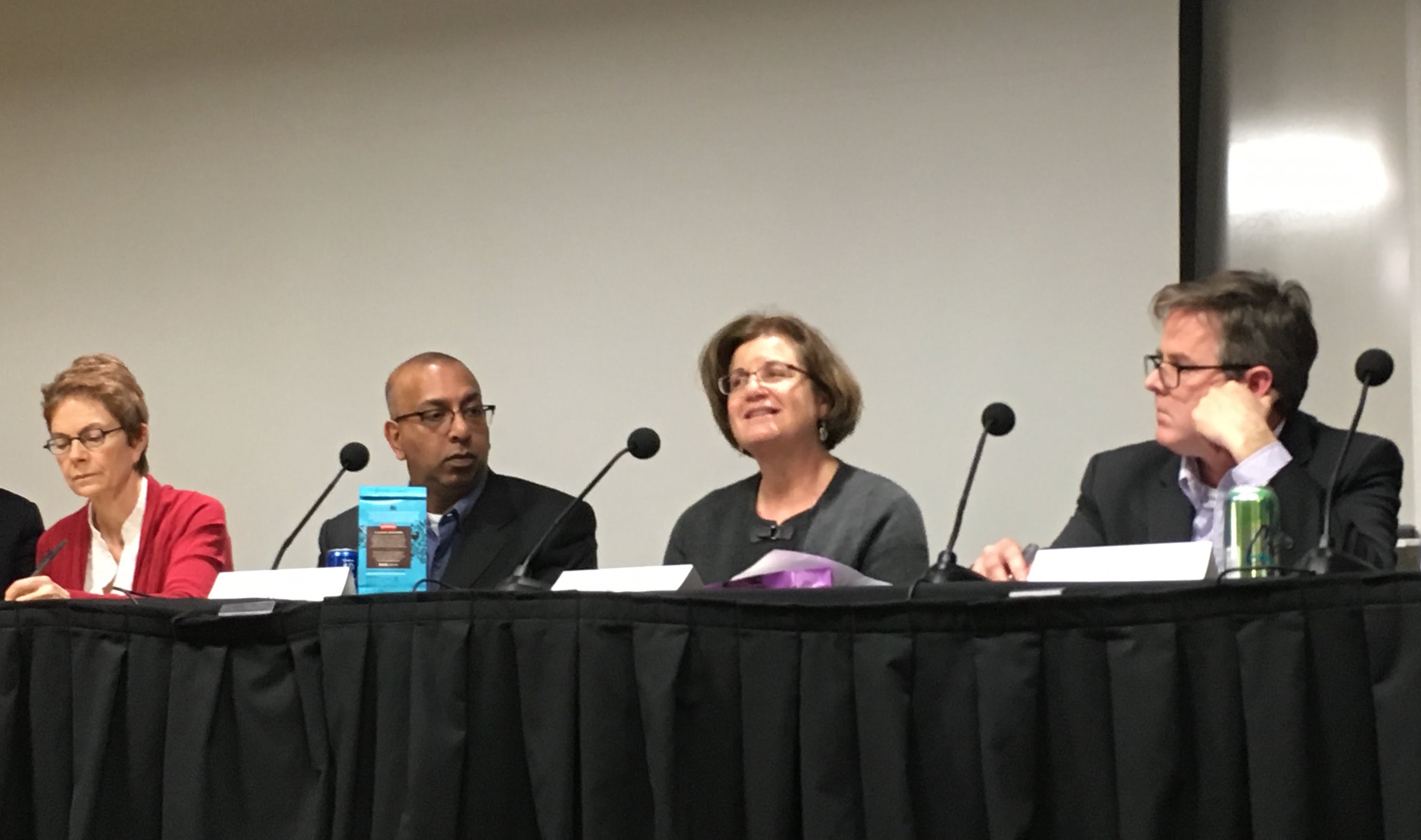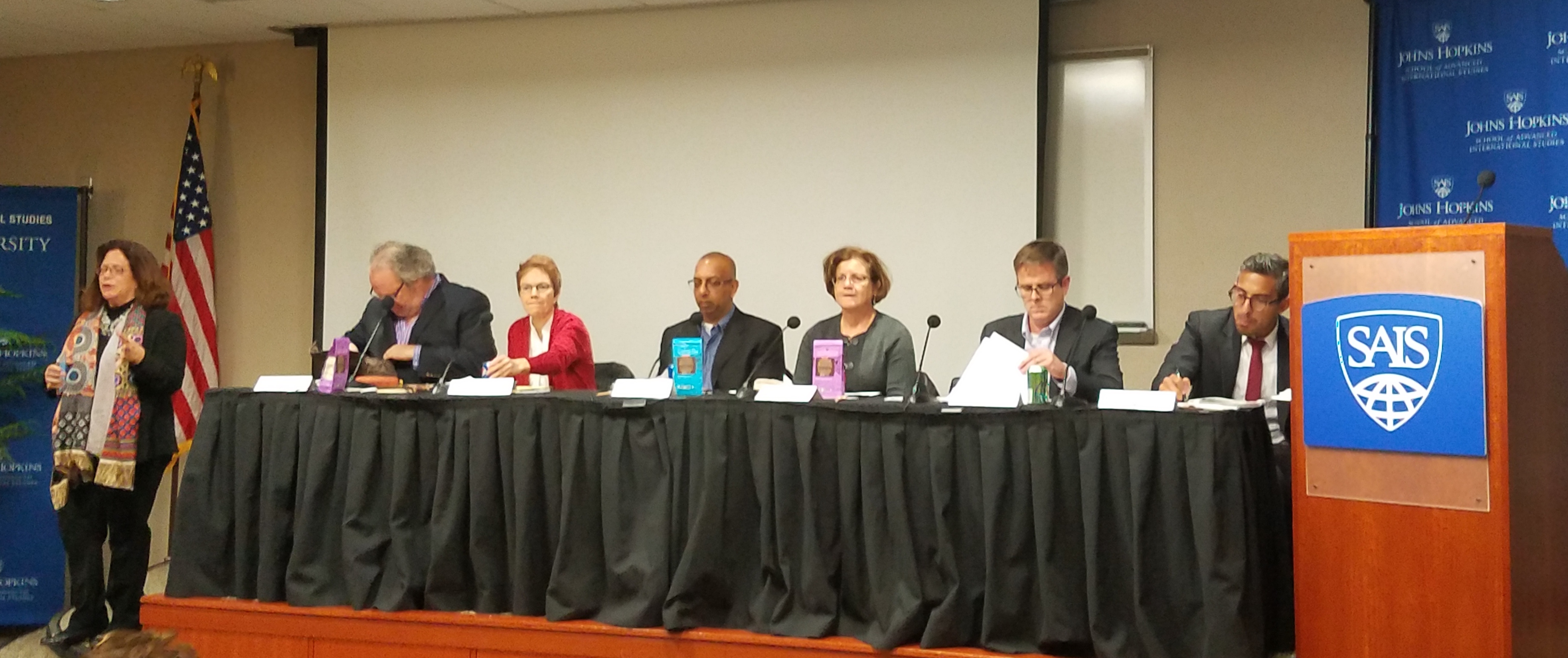by Tyler Giannini and Amelia Evans
Ten years ago, our clinic was asked to figure out a way to evaluate whether multi-stakeholder initiatives—or MSIs for short—were helping to advance human rights or whether in fact they were doing precisely the opposite.
MSIs are voluntary governance efforts that bring together corporations, civil society, academics, and in some cases governments and rights holders themselves to (privately) govern thorny human rights issues, and by 2010, they had proliferated in the business and human rights field.
The allure was (and still is) obvious. If we bring the right players together, they can learn from each other and solve a given problem by setting up a democratic institution that can prevent future abuses and sanction violators, and governments will not have to pass hard laws and unnecessary regulations. The potential flaws were (and remain) just as obvious—the power imbalances amongst the players are acute and asking industry to voluntarily give up power and self-regulate is a fool’s errand that puts the fox in charge of the chicken coop.
Thus, we set out to look at which way the institutions had gone—had they filled their promise or had the inherent flaws gotten the better of them? Little to no systematic work on the question had been done at the time, and what started as a one-semester project turned into a non-profit—MSI Integrity—and a decade of work.
Today, MSI integrity is publishing its new report, entitled ”Not Fit for Purpose,” which compiles its experience and insights over the last decade. The report explores cross-cutting trends and lessons learned about MSIs, as a field, from a human rights perspective. MSI Integrity’s assessment is clear: “While MSIs can be important and necessary venues for learning, dialogue, and trust-building between corporations and other stakeholders—which can sometimes lead to positive rights outcomes—they should not be relied upon for the protection of human rights. They are simply not fit for this purpose.”
To coincide with the report’s release and to commemorate ten years of engagement, our Clinic and MSI Integrity are partnering to launch a blog series to critically examine the role and value of MSIs in business and human rights. This series is set up so that contributors will be in dialogue with one another on a central question: do we need to rethink the role of MSIs? For us, underpinning this question is a more fundamental one: are MSIs working for rights holders? Some contributors will examine the landscape in which MSIs operate, while others will offer critical reflections or consider ways forward for these institutions–or for alternative ones (which you are invited to explore further during our live-illustrated discussion exploring worker-driven governance arrangements on July 30).
To kick-off this series, we pose three critical considerations that we suspect might recur (as they have in the past) when contributors ask whether MSIs are working for rights holders and if their role and place in human rights needs to be considered.
First, where and how is power situated within MSIs? Alongside the question how power is situated, comes the question of who controls that power and, with it, the institution. In the context of business and human rights, on one side of the spectrum, there are arrangements where industry controls the entire process, such as an industry association; and then there are community-controlled governance regimes, such as worker-controlled bodies. MSIs were supposed to be somewhere in the middle of the spectrum both in terms of who controlled the institution and in terms of who benefited. Ten years ago, the questions of power and where on the spectrum did MSIs actually lie were front and center in debates—and that remains the case today.
Second, MSIs raise a host of questions around notions of accountability and democratic governance. When you first engage with the term “MSIs,” it may connote promises of inclusion, equality, representative governance, and the rule of law. Indeed, the governance arrangement has the tenor of a social contract in democratic societies (though here between private actors rather than between the state and its citizens.) For example, when we think of the rule of law, democratic principles like “no one is above the law” come to mind. That translates here to be the norm that “no corporation is above the law.” Have MSIs upheld such norms? Do MSIs need to be held to such norms?
Finally, there are questions about what value MSIs provide and how that is provided. In other words, who are they good for and who benefits most from these institutions? Are they tools of accountability and compliance, or are they more limited in the value add–to encouraging better practices, fostering learning, and giving stakeholders opportunities to convene and build relationships that would not otherwise develop? Depending on what value they bring, what does that mean for the promise of tackling human rights issues created by businesses?
After 10 years, to us it has become alarmingly clear that MSIs are not working for rights holders. The power in MSIs lies predominantly with corporate actors, not with rights holders. Thus, while the name “multi-stakeholder” persists, in reality these institutions work best not for multiple stakeholders, but for one stakeholder: the corporation. In this way, MSIs should be thought of as corporate associations with some representation of other actors, rather than as institutions that change the power dynamics in favor of protecting rights holders. In other words, the fox has gained the upper hand in managing the chicken coop.
(Tyler will have more to say on that in a blog later on in the series when he gives his take on how the fox gained the upper hand).
Tyler Giannini is the board treasurer and co-founder of MSI Integrity. He is a Clinical Professor of Law and directs the Human Rights Program and International Human Rights Clinic at Harvard Law School.
Amelia Evans is the executive director and co-founder of MSI Integrity. She is an international human rights lawyer and an Open Society Fellow on Economic Inequality.



